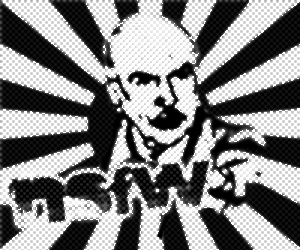Asian Girls > White Girls, fact
Created on: April 11th, 2007

Sponsorships:
| user | amount | user | amount |
|---|---|---|---|
| No one has sponsored this site ( ._.) | |||
| Sponsor this site! | Total: $0.00 | Active: $0.00 | |
Vote metrics:
| rating | total votes | favorites | comments |
|---|---|---|---|
| (2.5) | 383 | 2 | 179 |
View metrics:
| today | yesterday | this week | this month | all time |
|---|---|---|---|---|
| 0 | 0 | 0 | 0 | 19,281 |
Inbound links:
| views | url |
|---|---|
| 78 | https://www.bing.com |
| 23 | http://kirkvonnegut.ytmnsfw.com/ |
| 7 | http://www.google.com.hk |
| 4 | http://216.18.188.175:80 |
| 3 | http://ytmnsfw.com/users/mechasoupx/ |
Kurt Vonnegut, the satirical novelist who captured the absurdity of war and questioned the advances of science in darkly humorous works such as "Slaughterhouse-Five" and "Cat's Cradle," died Wednesday. He was 84.
Vonnegut, who often marveled that he had lived so long despite his lifelong smoking habit, had suffered brain injuries after a fall at his Manhattan home weeks ago, said his wife, photographer Jill Krementz.
A self-described religious skeptic and freethinking humanist, Vonnegut used protagonists such as Billy Pilgrim and Eliot Rosewater as transparent vehicles for his points of view. He also filled his novels with satirical commentary and even drawings that were only loosely connected to the plot. In "Slaughterhouse-Five," he drew a headstone with the epitaph: "Everything was beautiful, and nothing hurt."
His mother had succeeded in killing herself just before he left for Germany during World War II, where he was quickly taken prisoner during the Battle of the Bulge. He was being held in Dresden when Allied bombs created a firestorm that killed an estimated 135,000 people in the city.
"The firebombing of Dresden explains absolutely nothing about why I write what I write and am what I am," Vonnegut wrote in "Fates Worse Than Death," his 1991 autobiography of sorts.
But he spent 23 years struggling to write about the ordeal, which he survived by huddling with other POW's inside an underground meat locker labeled slaughterhouse-five.
The novel, in which Pvt. Pilgrim is transported from Dresden by time-traveling aliens from the planet Tralfamadore, was published at the height of the Vietnam War, and solidified his reputation as an iconoclast.
"He was sort of like nobody else," said Gore Vidal, who noted that he, Vonnegut and Norman Mailer were among the last writers around who served in World War II.
"He was imaginative; our generation of writers didn't go in for imagination very much. Literary realism was the general style. Those of us who came out of the war in the 1940s made sort of the official American prose, and it was often a bit on the dull side. Kurt was never dull."
I am, incidentally, Honorary President of the American Humanist Association, having succeeded
the late, great science-fiction writer Isaac Asimov in that totally functionless capacity. We
had a memorial service for Isaac a few years back, and I spoke and said at one point, "Isaac is
up in heaven now." It was the funniest thing I could have said to an audience of humanists. I
rolled them in the aisles. It was several minutes before order could be restored. And if I
should ever die, God forbid, I hope you will say, "Kurt is up in heaven now." That's my
favorite joke.
"We probably could have saved ourselves, but we were too damned lazy to try very hard ... and too damn cheap," he once suggested carving into a wall on the Grand Canyon, as a message for flying-saucer creatures.
He retired from novel writing in his later years, but continued to publish short articles. He had a best-seller in 2005 with "A Man Without a Country," a collection of his nonfiction, including jabs at the Bush administration ("upper-crust C-students who know no history or geography") and the uncer
Vonnegut once said that of all the ways to die, he'd prefer to go out in an airplane crash on the peak of Mount Kilimanjaro. He often joked about the difficulties of old age. "When Hemingway killed himself he put a period at the end of his life; old age is more like a semicolon," Vonnegut told The Associated Press in 2005. "My father, like Hemingway, was a gun nut and was very unhappy late in life. But he was proud of not committing suicide. And I'll do the same, so as not to set a bad example for my chil
I actually didn't like most of his stuff tbh. It was the ideas and plots behind his stories that I favored more than the writing style itself. I'm not going to get into it, but you might enjoy the writing if you like satire, early sci-fi, surreal or magic realism. Out of a dozen of his works, here's the 3 or 4 I would recommend reading: 'Jailbird', 'God Bless You, Mr. Rosewater', 'Cat's Cradle', 'Slaughterhouse-Five'.
The protagonist is Malachi Constant, originally of Hollywood, California, and the richest man in 22nd-century America. He possesses extraordinary luck, which he has used to build upon his father's fortune, but he has done nothing else significant with his life. He becomes the centerpoint of a journey that takes him from Earth to Mars in preparation for an interplanetary war, to Mercury with another Martian survivor of that war, back to Earth to be pilloried as a sign of God's displeasure, and finally to Sat
Bold
Italic
Underline
Code
User Link
Site Link